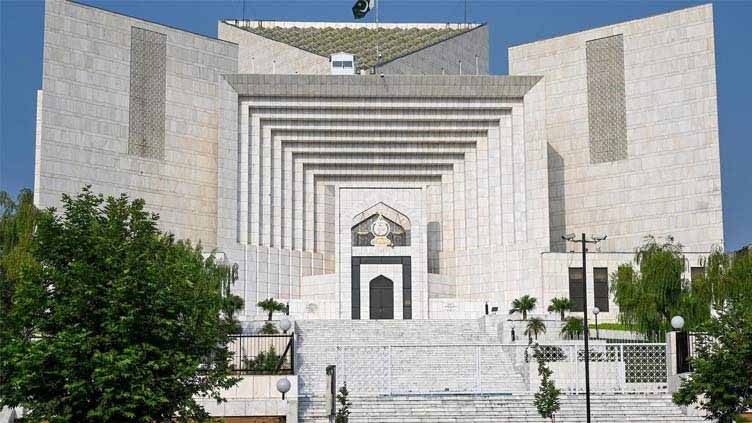SC reserves verdict in additional registrar contempt case

Pakistan
Justice Aqeel Abbasi remarked that there seems to be confusion regarding the issue
ISLAMABAD (Dunya News) – A two-member bench of the Supreme Court on Thursday reserved verdict in the case of contempt of court by the additional registrar.
A two-member bench of the Supreme Court, consisting of Justice Mansoor Ali Shah and Justice Aqeel Abbasi, heard the contempt of court case and reserved the verdict after hearing multiple arguments.
Earlier, in response to the contempt of court notice regarding the rescheduling of the case related to powers of bench, Supreme Court Additional Registrar Nazar Abbas submitted his reply to the show-cause notice.
In his response, Additional Registrar Nazar Abbas requested the withdrawal of the show-cause notice, asserting that he did not defy any judicial orders. He stated that he had submitted a note regarding the matter of forming a bench based on the judicial order to the Practice and Procedure Committee.
Advocate Hamid Khan assisted the bench in the matter and presented his arguments.
JUSTICE MANSOOR-HAMID KHAN DIALOGUE
Justice Mansoor Ali Shah, engaging in a dialogue with lawyer Hamid Khan, inquired whether a judicial order could be changed administratively.
Advocate Hamid Khan replied that an administrative order could not alter a judicial order. He explained that the Supreme Court's formation is under Article 175, and judicial power is vested in the entire Supreme Court. The definition of the Supreme Court is clear; all judges are included, and it cannot be stated that only a specific judge can exercise the Supreme Court's power.
Justice Mansoor Ali Shah remarked that this is a separate issue, and if the case were about interpreting Article 191-A, this question could have arisen. However, the case at hand pertains to the return of the Judges Committee, and the Chief Justice of Pakistan and Justice Amin-ud-Din Khan are part of that committee.
On the surface, it appears that the two-member judges committee ignored the judicial order. If the judges' committee disregards a judicial order, the matter can be referred to the full court. The court sought assistance on this matter.
Justice Aqeel Abbasi remarked that there seems to be confusion regarding the issue. He asked Hamid Khan how he views Article 191-A.
Hamid Khan noted that in the past, the Supreme Court had the authority to make rules regarding the formation of benches, but now some of those powers had been reduced. The question of the 26th amendment might arise here.
Justice Mansoor Ali Shah further questioned whether in any country, the executive, rather than the judiciary, forms a bench. He asked Hamid Khan if he could provide an example.
Hamid Khan responded that there was no such example.
The court asked whether, under the rules of 1980, the full court would be constituted by Chief Justice of Pakistan or by a committee. Can the matter of forming the full court be sent to the Judges Committee through a judicial order?
Hamid Khan responded that the section 2-A of the Regular Judges Committee Act does not align with Article 191-A. He emphasised that Parliament can increase, but not reduce, the judiciary's powers. He also wanted to give an example of Article 191-A.
Justice Mansoor Ali Shah remarked that this power is separate from the current case. These questions are related to the 26th constitutional amendment.
Hamid Khan continued that Article 191-A mentions constitutional benches, but there is no mention of a constitutional bench in the Supreme Court. At least a five-judge constitutional bench can be formed, and in this situation, three constitutional benches can be formed.
The senior-most judge will head the bench. He argued that since Article 191-A does not align with section 2-A of the Judges Committee Act, it is unconstitutional.
WE ARE HERE FOR CHIT-CHAT: JUSTICE MANSOOR
In an exchange of arguments with Ahsan Bhoon, Justice Shah remarked that they weren't part of the constitutional bench, therfore, were there "for chit-chat only".
"You would have been successful in establishing a constitutional court if you had pushed a little more," said Justice Shah.
Bhoon responded that they tried very hard for the constitutional court. He said whichever references were being given here were not effective now after the passage of the 26th constitutional amendment.


